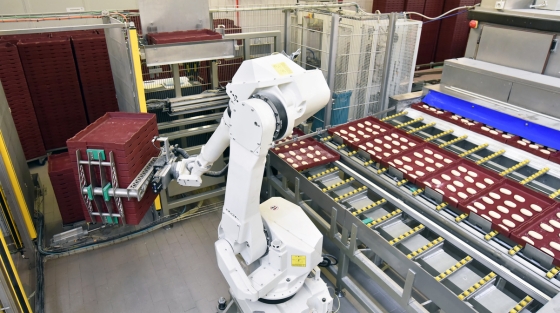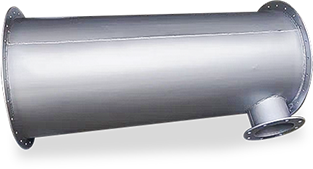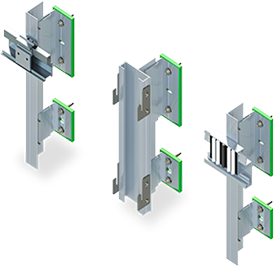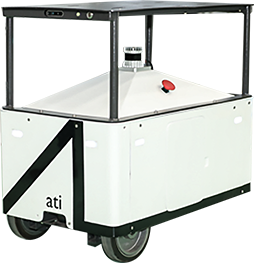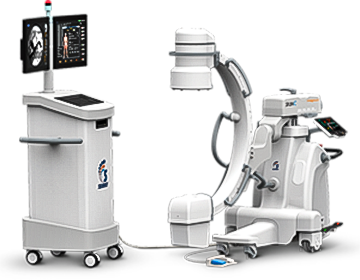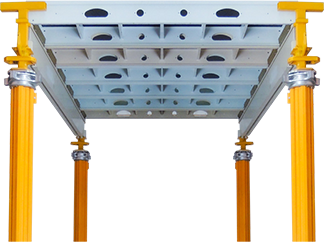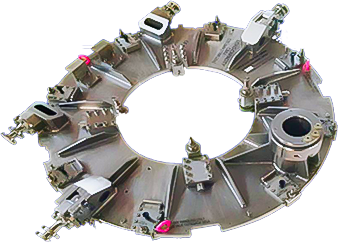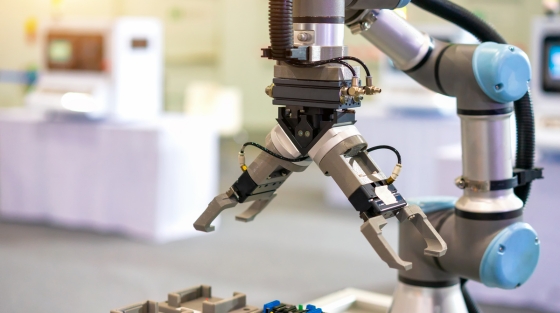
Welcome to the Karkhana.io blog, your source for insightful articles on manufacturing solutions and industry trends. In this blog post, we will explore the key differences between collaborative robots and industrial robots, shedding light on their unique features and applications.
Industrial Robots: Power and Precision
Industrial robots have been a cornerstone of manufacturing automation for several decades. These robots are designed for high-speed, precise, and repetitive tasks. Here are some defining characteristics of industrial robots:
1. Power and Payload Capacity
Industrial robots are built to handle heavy payloads, making them suitable for applications that involve lifting and moving substantial objects. They are equipped with robust mechanical structures, powerful motors, and rigid joints that provide the necessary strength and stability.
2. Speed and Accuracy
Industrial robots excel in achieving fast cycle times and maintaining high levels of accuracy. With advanced control systems, precise sensors, and optimized kinematic designs, these robots can repeatedly perform tasks with exceptional precision, ensuring consistent product quality.
3. Fixed Automation
Industrial robots are typically installed in fixed locations within manufacturing facilities. They are programmed to perform specific tasks within predefined workspaces. Safety measures are implemented to prevent human interaction during operation, ensuring a controlled and protected environment.
4. Application Range
Industrial robots find applications in a wide range of industries, including aerospace, automotive, and general engineering. They are commonly used for tasks such as welding, assembly, material handling, painting, and packaging. Their power, speed, and accuracy make them ideal for high-volume production lines and repetitive operations.
Collaborative Robots: Human-Robot Collaboration
Collaborative robots, also known as cobots, are a more recent addition to the robotics landscape. These robots are specifically designed to work alongside humans in a collaborative and interactive manner. Let’s explore the key characteristics of collaborative robots:
1. Safety Features
One of the defining features of collaborative robots is their advanced safety features. Cobots are equipped with sensors and intelligent systems that allow them to detect and respond to human presence. They can automatically reduce speed, stop, or change their path to ensure the safety of human operators working in close proximity.
2. Flexibility and Adaptability
Collaborative robots are designed to be highly flexible and easily programmable. Unlike traditional industrial robots, they can be quickly reprogrammed to perform different tasks, making them suitable for small-batch production and tasks that require frequent changes in operation.
3. Easy Integration
Cobots are designed with user-friendly interfaces and intuitive programming capabilities, allowing operators to teach them tasks without specialized programming knowledge. This ease of integration enables rapid deployment and reduces the reliance on external automation expertise.
4. Versatile Applications
Collaborative robots find applications in various industries, including aerospace, automotive, and electronics. They can be used for tasks such as assembly, pick and place, quality control, machine tending, and material handling. Their ability to work alongside human operators in shared workspaces enhances productivity, efficiency, and workplace ergonomics.
Choosing the Right Robot for Your Needs
When considering whether to use collaborative robots or industrial robots in your manufacturing processes, several factors come into play. It’s essential to assess your specific requirements, production volume, safety considerations, and the level of human-robot interaction needed before choosing the robots for your application in the industry.
Take the Next Step with Karkhana.io
Karkhana.io is a flexible & scalable manufacturing solutions provider that can cater to all your manufacturing needs.
Our flexible manufacturing services enable us to service client orders of all sizes from small batches to large volumes. We also help many of our clients in solving complex product assembly and localization problems.
We have an extensive, cutting-edge experience with all manufacturing services like CNC machining, 3d printing, Sheet metal fabrication, Injection moulding, and Vacuum casting.
We cater to every manufacturing need across industries like Aerospace, Automation, Automobile, Defence, Drone, Energy, EVs, FMCG, General Engineering, Medical, Oil & Gas, Pharma, and Robotics.
Partner with us to bring speed to your manufacturing. Talk to us about your manufacturing needs by filling up the form below or get in touch with Alay at alay@karkhana.io
